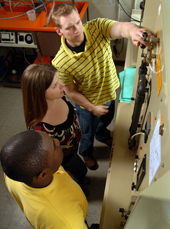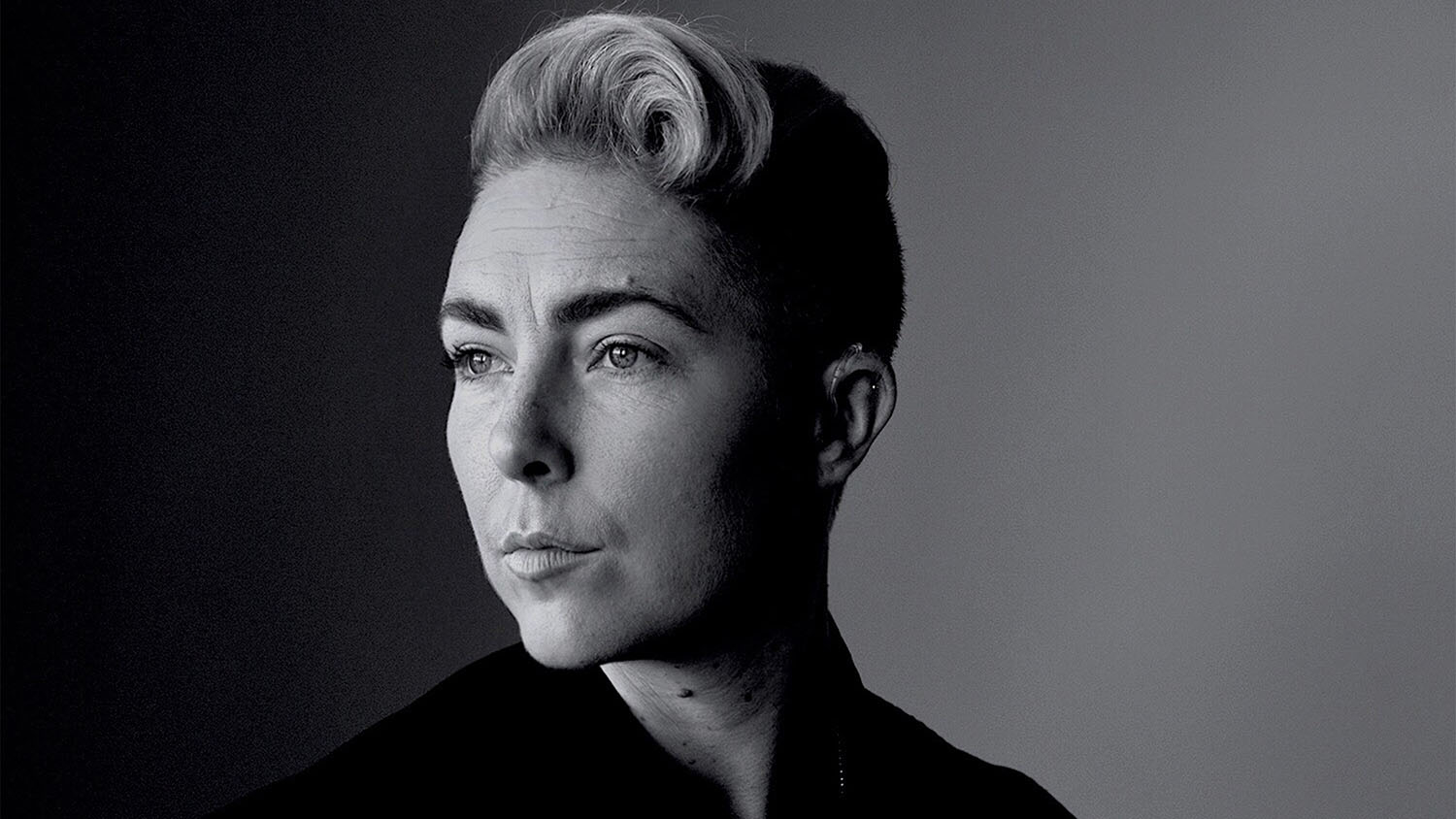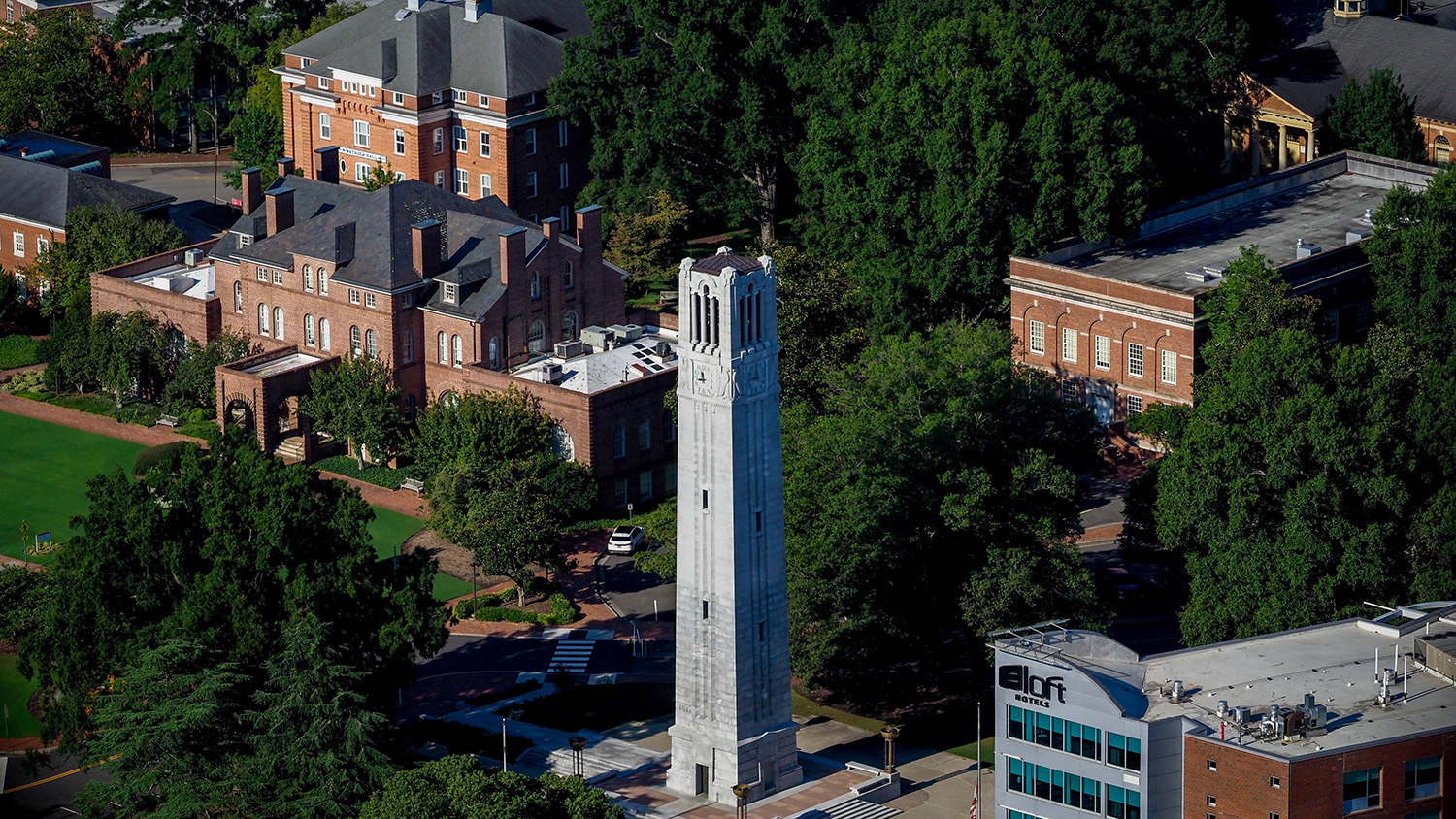Doctorate in the House?
The National Research Council’s new ratings of doctoral programs are not your mama’s rankings—unless mama happens to be a statistician.
NC State’s doctoral programs performed solidly in the report, which offers a snapshot of the 2005-06 academic year, says Dr. Duane Larick, dean of the graduate school.
“Those looking for easy numbers to generalize about a university’s doctoral program will be sorely disappointed,” says Larick, who has just consulted several statisticians while poring over the report. “In general, NC State has a number of highly ranked programs—statistics and chemical engineering, for example—as well as some programs ranked in the middle and a few toward the bottom.”
As Larick knows, it’s not a matter of claiming top 10 or top 25 bragging rights. Instead, you’d have to say something like, “With 90 percent certainty, we’re No. 3 to No. 17!”

Home on the Range
In the rankings, each of NC State’s 43 rated doctoral programs has five different statistical ranges for faculty, reputation, research activity, diversity and student support.
Statistics professor Len Stefanski compares the process to asking 100 basketball experts to rank the college conferences. While its position would vary, the ACC wouldn’t be at the bottom of any expert’s list.
“A fairly conventional approach to handling multiple scores is to throw out some of the extremes and then use the remaining middle scores—think of judging in Olympic gymnastics and figure skating events,” Stefanski says. “So let’s take our list of 100 rankings for the ACC and throw out the top five and the bottom five. The remaining 90 percent ‘middle’ scores range from 1 to 5. This is similar in spirit to what the NRC is trying to accomplish.”
The report, which ranks 5,004 doctoral programs at 212 universities, was delayed because of questions about data collection and methodology. Some university officials have publicly criticized the format and the length of time between data collection and release.
“The findings must be interpreted with that time lapse in mind, as most doctoral programs will have changed at least somewhat since 2005-06,” Larick says. “Because it still stands as the most comprehensive analysis of doctoral education currently available, we will use it to guide improvement of doctoral education at NC State.”
Prospective students can use the report to check out Ph.D.programs in their chosen discipline—for instance, that highly ranked statistics program at NC State. You can read the full rankings online.
- Categories:


